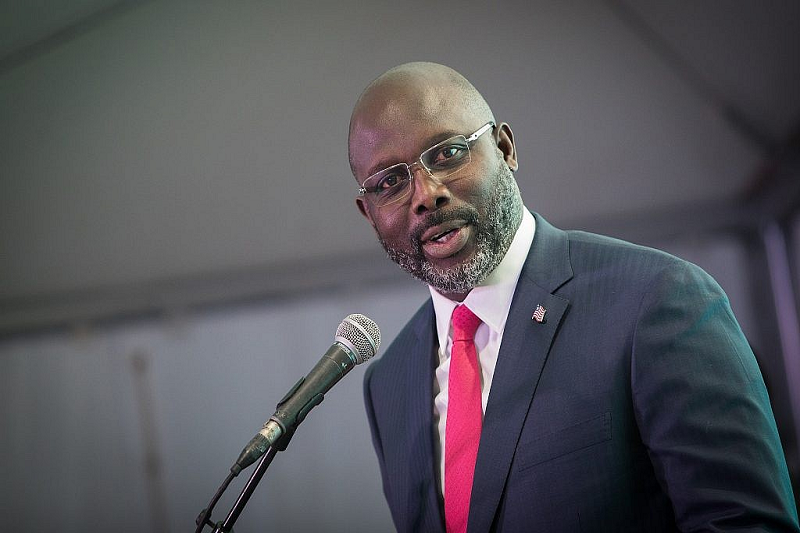On Sunday, thousands of people gathered in Liberia’s capital city of Monrovia to watch opposition leader Joseph Boakai open his campaign ahead of the elections in October. These elections will test the popularity of former football star and current President George Weah following a turbulent first term in office.
Despite the rain, supporters of the soft-spoken 78-year-old Boakia, who finished second to Weah in the 2017 elections and whom opponents have dubbed “Sleepy Joe” for allegedly dozing off during public appearances, danced, waved flags, and clamored for change.
Former Weah supporters are now disillusioned with him because, in their opinion, he has failed to improve living conditions or eradicate corruption in the impoverished West African nation that has experienced a civil war, a terrifying Ebola outbreak, and declines in commodity prices this century.
According to businesswoman Martha Gould, “We thought he (Weah) was going to bring the change he promised, but nothing.” “I am in desperate need of a change for the better.”
Keep Reading
Despite having no prior experience in politics, Weah was elected president riding a surge of optimism that he, as a massively popular former world soccer player of the year, would be able to make things better.
The United States government took action against three Liberian officials, including Weah’s chief of staff, Nathaniel McGill, in December of 2018, on the grounds that they were corrupt and had fraudulently misappropriated public assets. Weah dismissed the officials, all of whom have stated that they did nothing illegal.
In 2018, a Liberian court issued arrest warrants for over thirty former officers of the country’s central bank in relation to the disappearance of ten million dollars.
In the year 2020, Liberia ran out of gasoline due to an error in the accounting of fuel supply in tanks run by the state, which caused panic at the gas stations.
However, it is still unclear whether or not Boakai and his Unity Party will be able to alter the flow of the election. According to the World Bank, Weah continues to have support from a sizable portion of the populace, and mining and agriculture growth helped the nation’s economy grow by about 5% in 2018.

